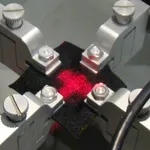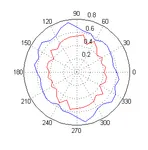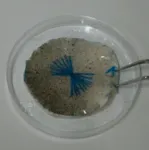Experimental (Bio-)Mechanics: Uniaxial / Biaxial tensile tests
For accurate numerical simulation of soft biological tissue or organs, as well as a deeper understanding of diseases, sophisticated material models are crucial. Soft biological tissue often exhibits nonlinear sometimes anisotropic properties and a complex fibre structure. In order to account for these properties in a computational model, by using an appropriate strain energy function (SEF), tensile tests are conducted and carefully evaluated. For anisotropic materials the information provided by uniaxial tensile tests is not sufficient to specify the form and the parameters of a strain energy function, thus biaxial tests are necessary.
Uniaxial testing machine
Uniaxial Tension Tester - Bose ElectroForce 3100 (Bose Cooperation, Eden Prairie, USA).
One clamp is connected to a force transducer and the other one to a displacement transducer. For testing living precision-cut rat lung slices (PCLS) specific clamps were designed and manufactured.
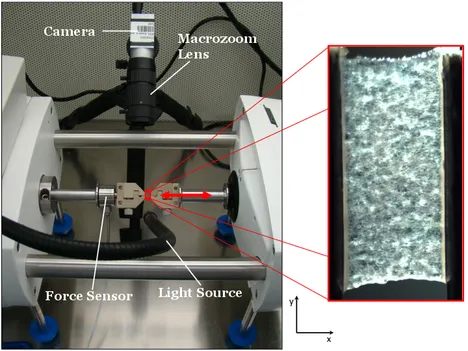
Small force transducer:
- range of ±0.5 N and a
- resolution of 2.5 mN.
Medium force transducer:
- range of ±2.5 N and a
- resolution of 12.5 mN.
Large force transducer:
- range of ± 22 N and a
- resolution of 0.11 N.
Displacement transducer had a
- range of ±2.5 mm and a
- resolution of 12.5 µm.
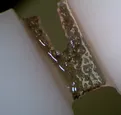
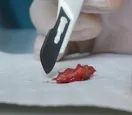

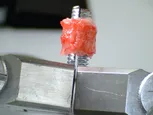
Biaxial testing machine
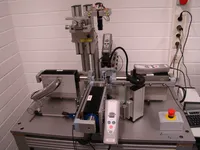
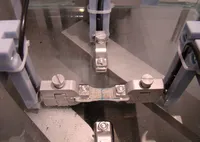
Zwick/Roell Biaxial testing machine mediX0.1 (Messphysik Materials Testing, Fürstenried Austria)
The biaxial testing machine mediX0.1 features 4 independent linear actuators with 4 load cells. The non-contact optical speckle pattern tracking using 4 lasers and a digital camera allows for biaxial strain measurement.
Force transducers:
- range of ±100 N and a
- resolution of 0.6 mN.
Stroke:
- 50 mm
Resolution of distance measurement:
- 0.1 µm.
